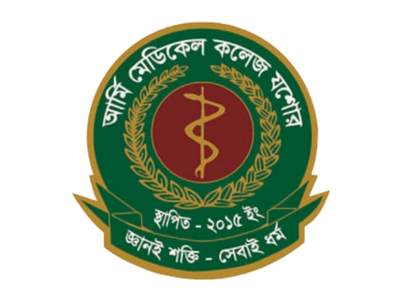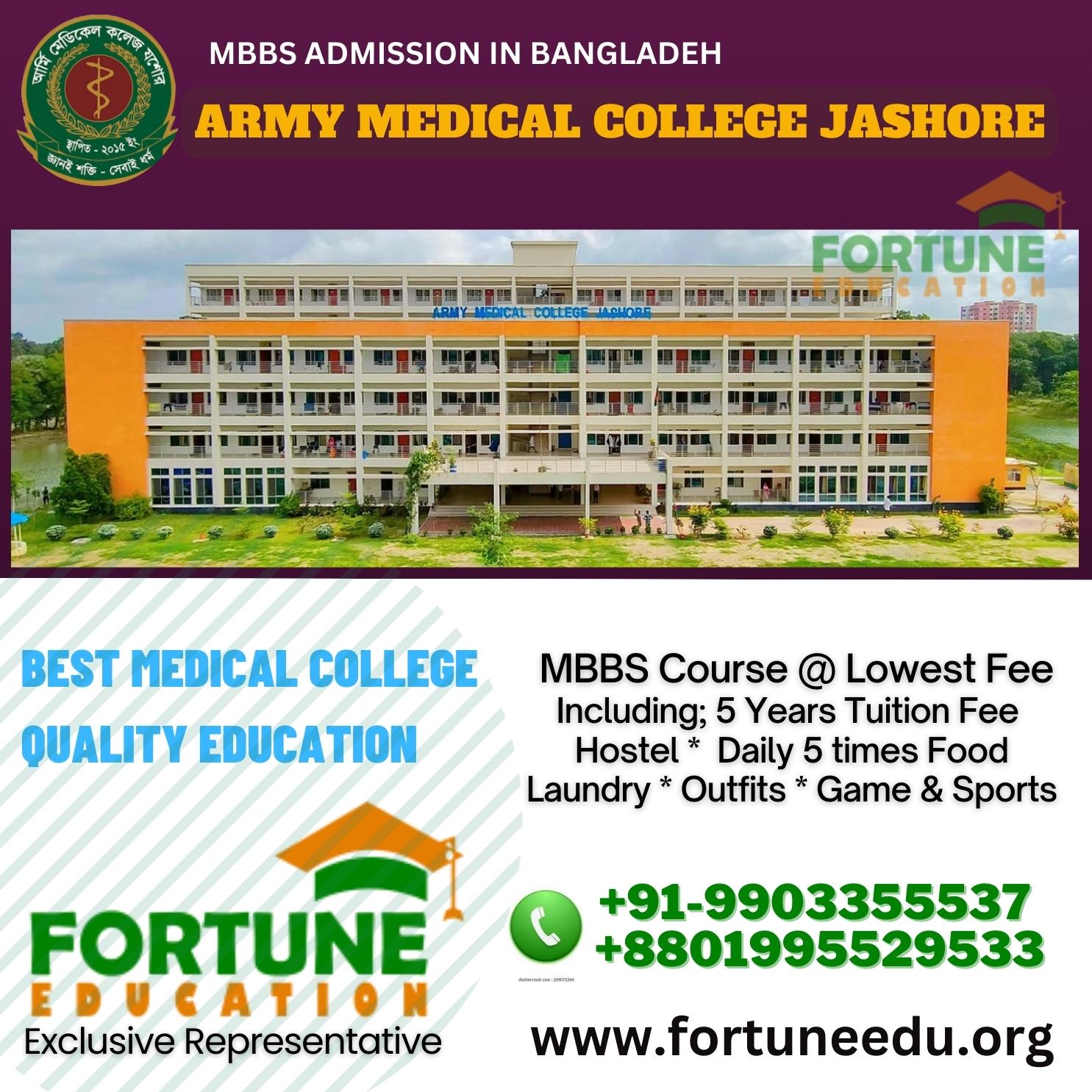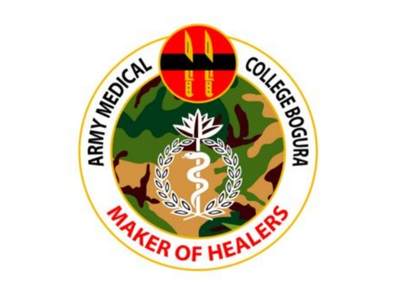
MBBS Fees at Army Medical College Bogura
May 31, 2025MBBS in Bangladesh Admission Circular 2025
July 27, 2025Army Medical College Jashore (AMCJ) is one of the structured military-run medical colleges in Bangladesh, established in 2014 under the administration of the Bangladesh Armed Forces. Located in the Jashore Cantonment, the institution functions under the academic affiliation of the Bangladesh University of Professionals (BUP) and is recognized by the Bangladesh Medical and Dental Council (BMDC).
AMCJ delivers a five-year Bachelor of Medicine and Bachelor of Surgery (MBBS) program followed by a mandatory one-year internship. The curriculum is taught in English and aligns with international standards, allowing its graduates to pursue licensure in countries such as India, the UK, the USA, and others.
Army Medical College Jashore Hostel Facilities
The campus infrastructure at AMCJ is designed to support both academic and residential needs of students, particularly those coming from abroad. Hostel accommodation is mandatory for international students and forms an essential component of their life on campus. All housing is managed under military protocols, ensuring strict discipline, safety, and optimal conditions for academic focus.
Fortune Education, an officially authorized consultant, facilitates MBBS admissions for international students at AMCJ. Beyond academic guidance, the consultancy assists in hostel allocation, post-arrival integration, and orientation within the residential facilities.
Overview of Hostel Infrastru cture at AMCJ
cture at AMCJ
The hostel facilities at Army Medical College Jashore are constructed within the boundaries of the cantonment, ensuring enhanced safety, discipline, and proximity to academic buildings and clinical training centers.
The hostels are segregated by gender, and each facility is equipped with modern utilities and maintained according to military standards. These are not optional add-ons but integral to AMCJ’s approach to providing a cohesive residential education experience.
Key architectural and functional features include:
-
Well-ventilated rooms with adequate lighting
-
Single and shared occupancy options
-
Attached and shared washrooms depending on room type
-
On-floor supervisors or hostel wardens for 24/7 assistance
-
Reading and study lounges for group and private academic work
-
Secure entry and exit with biometric attendance or sign-in logs
-
Mess and dining facilities located within or near the hostel block
Room Types and Allocation
Accommodation at AMCJ is structured to support academic discipline and student comfort. The rooms are assigned based on availability, medical needs, and academic year.
-
Single Occupancy Rooms: Typically offered to final-year students or those requiring medical accommodation.
-
Double and Triple Sharing Rooms: Standard for first- to third-year students.
-
Attached Washroom Rooms: Limited in number, prioritized for final-year or foreign students with medical certificates.
-
Common Washroom Facilities: Maintained regularly and inspected by hostel supervisors.
All rooms come with basic furnishings:
-
Study table and chair
-
Bed and mattress
-
Cupboard or locker
-
Ceiling fan and tube light
-
Dustbin and personal shelf
International students are typically assigned rooms in blocks designated for foreign nationals, ensuring cultural comfort and easy access to international affairs staff.
Dining and Mess Arrangements
The mess facility within the hostel premises serves Five meals a day, tailored to meet dietary needs of both local and international students. Hygiene standards are maintained in compliance with military sanitation protocols.
-
Meal Types: Vegetarian and non-vegetarian options available
-
Special Diets: Available upon request, especially for students with medical conditions
-
Dining Hours: Fixed by institution, with strict monitoring for discipline
Utilities and Housekeeping
Maintenance of hostel premises is overseen by a dedicated housekeeping team. Daily cleaning schedules are implemented for:
-
Hallways and stairwells
-
Washrooms
-
Common study and prayer rooms
Students are responsible for maintaining cleanliness within their personal rooms. Violations are recorded, and repeated offenses can lead to disciplinary action.
Utility services include:
-
24-hour electricity supply, with generator backup during outages
-
Filtered drinking water
-
Wi-Fi or LAN internet, accessible during specified hours
-
Laundry area for personal washing
Security and Monitoring
The hostel is monitored by military personnel assigned to student welfare and campus safety. Entry is strictly restricted to students and authorized staff. Visitors, including parents of international students, must obtain prior approval.
Security mechanisms include:
-
Surveillance Cameras at entrances, exits, and corridors
-
Biometric attendance or sign-in sheets for daily roll-call
-
Disciplinary checks by hostel wardens and campus security
-
24/7 emergency contact access to college administration and medical support
These systems ensure that international students feel safe and supported in a foreign country.
Hostel Rules and Regulations
The hostel functions under strict military supervision, and all students are expected to comply with the following norms:
-
Curfew Timings: Must be followed without exception
-
Room Inspections: Regularly conducted by supervisors
-
Dress Code: Modest attire required in all common areas
-
Noise Regulations: Quiet hours are enforced for study and rest
-
Prohibited Items: Electric cookers, irons, unauthorized medications, and others
-
Ragging and Harassment: Absolutely prohibited with immediate disciplinary measures
International students receive a detailed hostel handbook during orientation, outlining all residential responsibilities.
Hostel Allotment Procedure for International Students
All hostel rooms are allotted by the hostel administration office under the college’s registrar section. The allotment process for international students is facilitated by Fortune Education and coordinated in advance of their arrival in Bangladesh.
Allotment Process:
-
Application Form Submission: Once admission is confirmed, students submit a hostel application form indicating their preferences for room type and dietary restrictions.
-
Medical Certificate: A basic health screening is required for room assignment. Students with specific health conditions may be prioritized for single rooms.
-
Warden Approval: The final allotment is sanctioned by the hostel warden based on availability, gender, and academic batch.
-
Arrival and Key Handover: Upon reaching campus, international students are received by designated staff, who escort them to their hostel rooms and assist with initial setup.
Room changes are rarely permitted except under medical or emergency circumstances. All assignments are recorded and approved by the college administration.
Support Services by Fortune Education
Fortune Education plays a significant role beyond academic admission by offering full-spectrum support for international students entering the residential campus at AMCJ.
Key Services Include:
-
Pre-departure Orientation: Informing students and guardians about hostel rules, dress code, permitted items, and daily schedules.
-
Arrival Coordination: Organizing airport pickup and secure transport to the hostel.
-
Welcome Kit Assistance: Guidance on purchasing bedding, utensils, hygiene items, and study supplies from local vendors.
-
Translation and Mediation: Providing multilingual support for non-Bangla-speaking students to resolve hostel-related concerns.
-
Emergency Protocol Navigation: Acting as a liaison between students and college administration during emergencies.
Fortune Education also maintains routine follow-ups with students to monitor their well-being and identify any adjustment challenges early on.
Safety, Medical Access, and Emergency Support
Hostel safety at AMCJ is administered under direct military oversight, making it one of the most secure residential environments for students in Bangladesh. This is especially reassuring for parents of international students, many of whom seek assurance of personal safety and access to healthcare.
Safety Measures:
-
Round-the-clock Military Security: Guards patrol all hostel blocks and campus zones.
-
Biometric Entry Systems: Ensuring that only authorized individuals enter the hostel area.
-
Emergency Drills: Conducted biannually to prepare students for fire, medical, or structural emergencies.
-
Complaint Redressal System: Any violation of safety protocols or student harassment is dealt with through a formal escalation mechanism.
Medical Support:
-
On-Campus Medical Unit: Available for first aid and outpatient care.
-
Affiliated Cantonment Hospital: Located within walking distance, equipped for diagnostics, emergencies, and inpatient care.
-
Medical Insurance: International students are advised to obtain basic insurance, though emergency treatment is available regardless of insurance status.
In case of illness, the hostel warden is notified immediately, and medical assistance is arranged without delay.
Cultural Integration and Residential Community Life
To assist foreign students in adapting to a new cultural environment, AMCJ hosts routine activities that foster interaction, understanding, and social cohesion among students from various backgrounds.
Activities and Facilities:
-
Language Assistance Programs: Occasional informal Bangla classes help international students navigate daily communication.
-
Inter-hostel Competitions: Including sports, debate, and cultural nights.
-
Prayer Rooms: Available for students of all faiths, respecting religious freedom.
-
Common Recreation Areas: Equipped with televisions, indoor games, and reading material.
These initiatives help foreign students develop a sense of community and reduce homesickness, thereby improving their academic focus.
Required Documentation for Hostel Admission
Before entering the hostel, international students must complete all formalities related to accommodation. The required documents include:
-
Hostel Application Form
-
Copy of Passport and Visa
-
Admission Confirmation Letter
-
Medical Fitness Certificate
-
Two Passport-Size Photographs
-
Payment Receipt of Hostel Fee
-
Guardian’s Contact Information (Home Country)
These documents are submitted to the Hostel Office, and students are issued a hostel ID and room assignment.
Feedback and Complaint Resolution
AMCJ provides formal and informal feedback channels for residents to report issues related to maintenance, roommate concerns, or facilities. Feedback may be submitted:
-
In writing to the hostel warden
-
Through class representatives
-
Via designated complaint forms available in hostel offices
Issues are generally addressed within 48 hours, and serious concerns are escalated to the campus administrative board.
Frequently Asked Questions (FAQs)
1. Is hostel accommodation compulsory for international students?
Yes, on-campus hostel residency is mandatory for all international students during their academic program at AMCJ.
2. Can I choose my roommate or switch rooms later?
Roommates are assigned by the warden. Room switches are permitted only for health or emergency reasons with official approval.
3. Are there separate hostel facilities for male and female students?
Yes. All hostels are gender-segregated and supervised independently to ensure safety and discipline.
4. Is cooking allowed in hostel rooms?
No. The use of electric stoves or open flames in hostel rooms is strictly prohibited due to fire safety regulations.
5. Will I have access to internet and study areas in the hostel?
Yes. Hostels have Wi-Fi zones, study lounges, and designated reading spaces to support academic productivity.


 cture at AMCJ
cture at AMCJ
